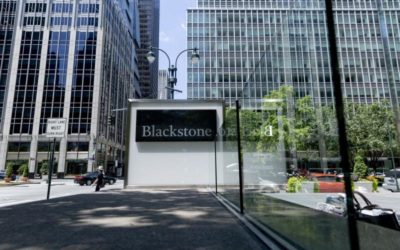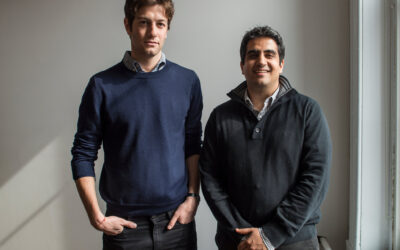Orlando Bravo has argued for years that software is so essential to business that companies won’t stop paying for it, even in a crisis. The coronavirus pandemic has proven him out.
As companies across various sectors of the economy laid off employees and dramatically cut back on spending, revenues at software providers owned by the Puerto Rican billionaire’s firm, Thoma Bravo, have largely kept chugging along, he says.
The resiliency has allowed the San Francisco private equity firm, already a prolific deal maker, to continue buying and selling at a torrid pace even as some rivals sit by and wait for the turmoil to subside. It has signed more than 15 transactions since the pandemic began, including an $11bn deal last month to sell mortgage-software company Ellie Mae to New York Stock Exchange owner Intercontinental Exchange. Thoma Bravo, which bought Ellie Mae for $3.75bn just last year, is set to make four times its money.
“People have proven that they can conduct business without going to an office, but they can’t do it without software,” Bravo says. “Software is everything. It is the business. It’s what makes the business go.”
Leveraged buyouts
Software has been the most popular sector for US leveraged buyouts every year since 2014, with annual deal volume more than doubling to $39.6bn in 2019, according to Dealogic. Even as the pandemic has crimped M&A, firms have struck $18.5bn worth of software buyouts in 2020 through the end of August, more than double the volume of the next-most-active sector, technology services.
That’s helped Thoma Bravo become one of the private equity industry’s most dominant players. Launched in its current form in 2008, the firm oversees around $60bn in assets, up from just $9bn at the beginning of 2016. It’s close to completing a $21bn-plus round of fundraising for multiple vehicles, including a new $16.5bn flagship fund, The Wall Street Journal reported.
The firm declined to comment on fundraising.
The success of Thoma Bravo and rival software specialist Vista Equity Partners hasn’t gone unnoticed at bigger, more established buyout firms like KKR, Blackstone Group and Carlyle Group, which have ramped up their activity in the sector.
It’s a far cry from the early 2000s when Bravo, who turned 50 last week, first began investing in business-software companies. At the time, the prospects of many software firms were uncertain and banks were wary of lending to them in part because they lacked hard assets.
“We entered at a time when valuations were low and the risks were high,” Bravo says.
But then many business-software companies shifted to a subscription revenue model, which is ideal for generating the predictable cash flows buyout firms and their lenders crave.
Purchase price multiples for US and European software deals are now the highest in the buyout business, averaging 14.4 times earnings before interest, taxes, depreciation and amortisation between 2018 and 2020, compared with 10.4 times for all other sectors, according to DealEdge. Along with the firm’s push into bigger-ticket deals, which are notoriously tricky to pull off, that could make it more challenging for Thoma Bravo to continue growing at such a rapid clip.
Bravo, an avid tennis player who often sports a vest and rarely wears a tie, has amassed a fortune worth $3.7bn, making him the first Puerto Rican-born billionaire, according to Forbes.
Born in the city of Mayagüez on the island’s west coast, Bravo’s father and grandfather ran a shipping company tied to the tuna industry. He attended private schools and learned to play tennis, eventually becoming one of Puerto Rico’s top players. Bravo’s tennis prowess helped earn him a spot at Brown University, where he studied economics and political science. After college, he worked in the mergers-and-acquisitions department at Morgan Stanley before heading to Stanford University where he earned MBA and law degrees.
Around the time of Bravo’s graduation, Carl Thoma and Bryan Cressey left Chicago private equity firm GTCR and formed Thoma Cressey Equity Partners. They hired Bravo in 1998 to work on IT-services deals in San Francisco. Things got off to a rocky start after two of his early deals for business-consulting and website-design companies imploded.
Established tech
The experience taught Bravo that instead of backing start-ups, he should be buying established tech companies with existing business customers. His first such deal in 2002, for a small software company called Prophet 21, earned the firm five times its money.
By 2005, the firm was renamed Thoma Cressey Bravo, and by 2008 Thoma and Bravo decided to spin off again, creating the software-focused Thoma Bravo.
“I don’t believe there’s any other firm that can say they’ve focused on software for over 20 years,” says Tom Galuhn, president of Mesirow Financial Private Equity, which first invested in Thoma Cressey Bravo in 2005 and was one of the lead contributors to the first Thoma Bravo fund in 2008. “That generates an enormous amount of what I’ll call intellectual capital.”
Adviser and cheerleader
Enthusiastic and driven, Bravo bounds around the firm’s glass walled office in downtown San Francisco. He strives to maintain a flat organisational structure in which a handful of top partners who have worked together for the bulk of their careers oversee small teams devoted to each portfolio company and subsector. During the pandemic, he has been an adviser and cheerleader for executives at the firm’s holdings.
“I get this call from Orlando, and it’s a 30-minute tornado of energy,” says BJ Jenkins, chief executive of security-software provider Barracuda Networks, which Thoma Bravo bought in 2018.
He has also devoted a fair bit of that energy to his native island. After Hurricane Maria devastated Puerto Rico in 2017, Bravo loaded up his private plane with food, water and other supplies and flew from San Francisco to distribute them to areas local authorities were struggling to reach. He ultimately donated $10m to purchase emergency goods and rebuild infrastructure.
Last year, Bravo committed $100m to start a programme aimed at backing and mentoring early-to-mid-stage Puerto Rican start-ups.
Like Vista, Thoma Bravo identifies software companies with a loyal customer base but middling profits and transforms them into moneymaking engines by retooling pricing, shutting down unprofitable business lines and adding employees in cheaper labour markets.
The firm then guides its companies to use the profits they generate to do add-on acquisitions, snapping up smaller rivals with offerings that they could spend months and millions of dollars trying to replicate.
Unlike some of its peers that tend to replace top executives with their own acolytes, Thoma Bravo prefers to work with existing management, believing turnover costs it valuable time.
“Their playbooks have allowed them to drive earnings growth at the companies in a really consistent way,” says Michael Bailey, director of private equity at longtime Thoma Bravo investor Massachusetts Pension Reserves Investment Management Board. “They also have this ability to capture breakout upside success.”
Examples include mainframe provider Compuware, which Thoma Bravo bought for $2.4bn in 2014. Inside the company was a business called Dynatrace that monitored the performance of applications and sent the data back to their owners. Recognising that the two businesses would perform better with distinct management, Thoma Bravo separated them. Dynatrace, which went public last year, now has a market capitalisation of around $11bn.
Higher price
In June, Thoma Bravo sold Compuware to KKR-backed BMC Software for a higher price than it paid for the two businesses combined.
At Ellie Mae, which had 98% customer retention but had been signing customers up for five-year contracts with no built-in price increases, Thoma Bravo bet it could bring older contracts up to the most current pricing. As those came up for renewal, customers got significant price increases with annual escalators, and it didn’t measurably affect retention.
The firm also cut costs, slashing $50m right off the bat. Ellie Mae had its engineers doing both product management and engineering. Thoma Bravo split up the roles, tasking business people with ensuring engineers were spending their time on profitable endeavours.
The firm also pushed Ellie Mae, which did all of its software development in pricey Northern California, to expand in lower-cost labour markets. Capsilon, a mortgage-automation-software provider the company bought last year, had a significant presence in India. Following the deal, the company has scaled up its head count there while holding it steady in California.
Source: Wall Street Journal
Can’t stop reading? Read more
US Pipeline Operator ONEOK Inks Two Deals for $5.9 Billion
US pipeline operator ONEOK Inc. agreed to buy a Permian Basin rival and a controlling stake in...
Blackstone Is Said to Seek A$5.5 Billion Loan for AirTrunk Bid
Private equity firm Blackstone Inc. is in discussions with banks for a five-year loan of about...
Thrive Capital to lead multi-billion dollar OpenAI investment round at $100bn valuation
OpenAI, the company behind the popular AI tool ChatGPT, is in advanced talks to secure several...




